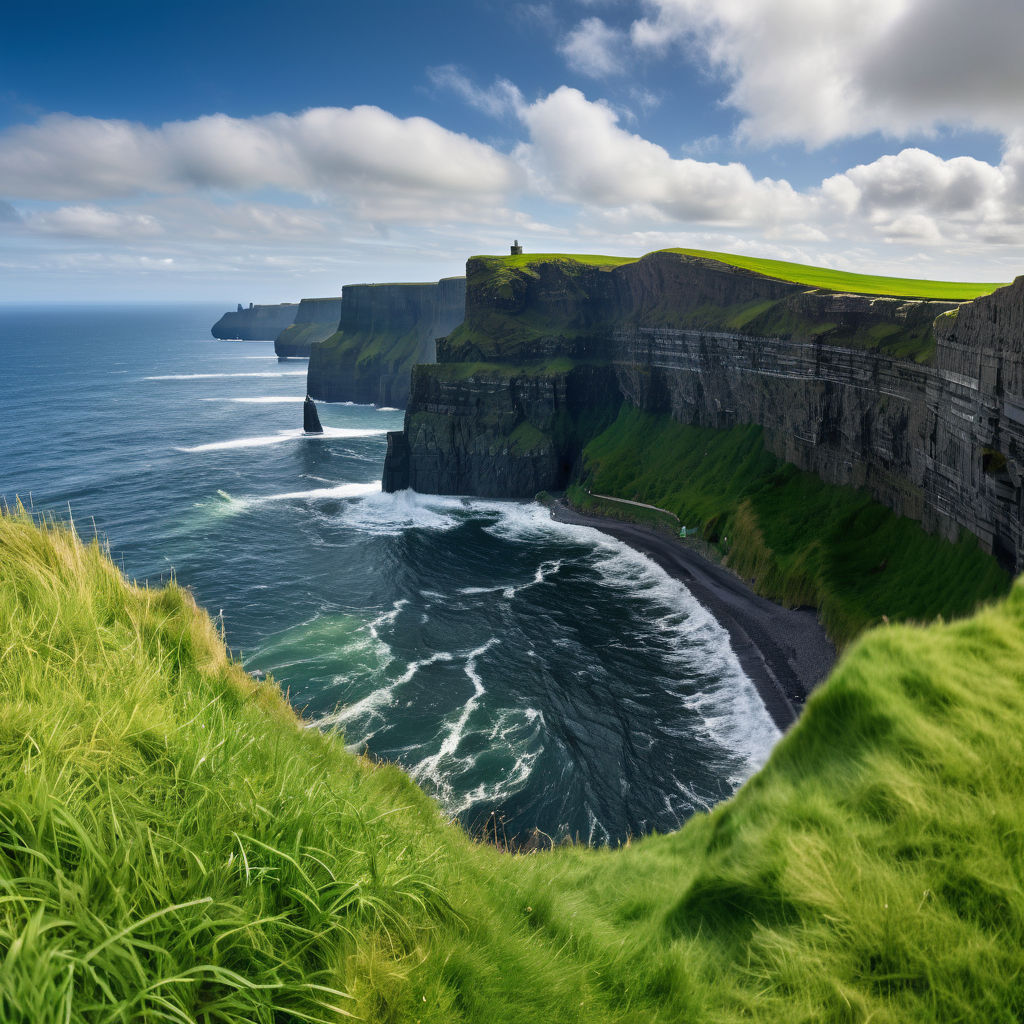Discover Ireland: The Emerald Isle of Rich Heritage and Vibrant Culture
Explore Ireland's Blend of Celtic Traditions and Modern Influences

Introduction to Ireland
Ireland, often referred to as the Emerald Isle, is known for its lush landscapes, rich cultural heritage, and vibrant cities. Located in the North Atlantic, it is west of Great Britain and comprises the majority of the island of Ireland. Major cities include Dublin, the capital, which is renowned for its historical landmarks and lively arts scene; Cork, a hub of culture and education; and Galway, famous for its festivals and coastal beauty. Ireland’s heritage is deeply rooted in Celtic traditions, with a rich tapestry of folklore, literature, music, and dance that has influenced cultures worldwide.
Cross-national and Cross-cultural Understanding
The Irish people are generally perceived as warm and welcoming, with a strong tradition of hospitality. This openness extends to other cultures, making Ireland a vibrant melting pot of ideas and traditions. The country actively promotes cross-cultural understanding through numerous educational programs and international partnerships. Ireland's educational system is highly regarded, and its universities attract students from all over the world. Programs like the Erasmus+ scheme facilitate student exchanges within Europe, while universities often have partnerships with institutions in the United States, Asia, and other regions. These exchanges not only enhance academic knowledge but also foster a deeper understanding of different cultures. Additionally, cultural festivals such as St. Patrick’s Festival, Galway International Arts Festival, and Dublin Theatre Festival serve as platforms for cultural exchange and showcase international talent.
Interactions and Social Dynamics
Interactions between Irish people and foreigners are typically friendly and informal. The Irish are known for their conversational style, which is often warm, witty, and engaging. They place a high value on politeness and humor in social interactions. It is common to find locals striking up conversations with strangers in pubs, cafes, or on the streets. Language plays a significant role in these interactions. English is the predominant language, spoken by almost everyone, making it easy for foreigners to communicate. Additionally, there is a growing interest in the Irish language (Gaeilge), which is taught in schools and used in cultural contexts. Multilingualism is embraced, with many residents speaking additional languages due to the diverse population and the importance of foreign languages in education.
Views on Dating and Relationships
Dating and relationships in Ireland reflect a blend of traditional values and modern attitudes. In urban areas, dating practices are similar to those in other Western countries, with online dating apps and social events being popular means of meeting new people. In rural areas, traditional matchmaking festivals, such as the Lisdoonvarna Matchmaking Festival, still hold cultural significance. Irish society generally views relationships with foreigners positively. There is an appreciation for different cultures and an understanding that these relationships can enrich personal experiences and broaden perspectives. However, family opinions and traditional expectations can influence attitudes, especially in more conservative areas. It is common for families to be involved in relationship decisions, emphasizing the importance of respect and compatibility.
Marriage and Family
Marrying foreigners in Ireland is generally accepted and increasingly common. The legal framework supports cross-cultural marriages, and there are no significant barriers to marrying a foreign national. Socially, mixed marriages are embraced, though couples may encounter challenges related to cultural differences and family expectations. In Ireland, family plays a central role in social life, and this extends to marriage. Weddings often involve elaborate celebrations that blend traditional Irish customs with elements from the foreign partner’s culture. For example, it is not uncommon to see Irish dances at the reception alongside traditional dances from the foreign spouse’s culture. These marriages highlight the blending of traditions and the mutual respect for different cultural practices.